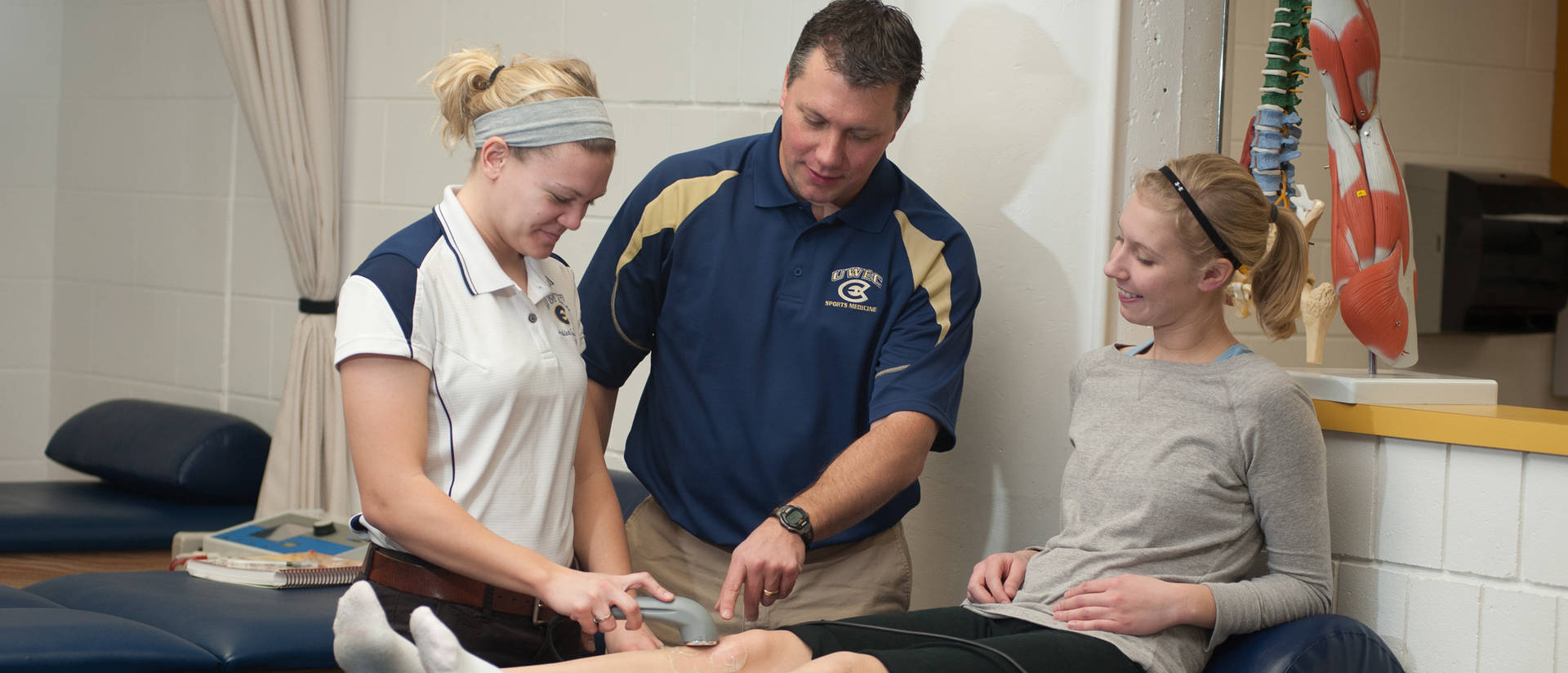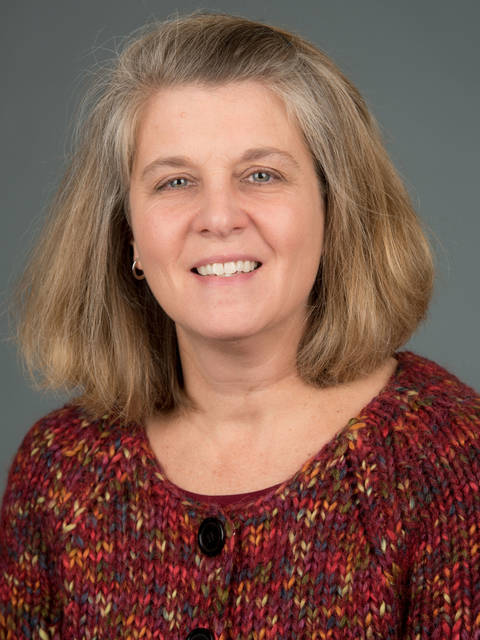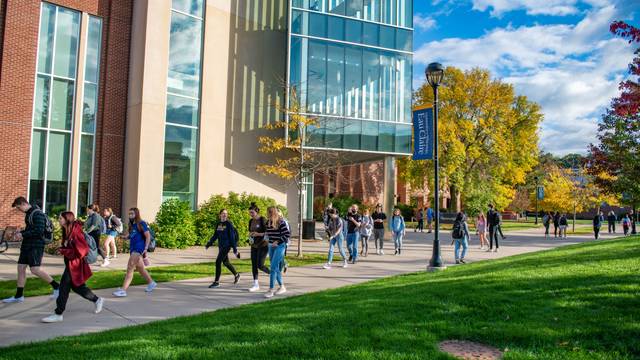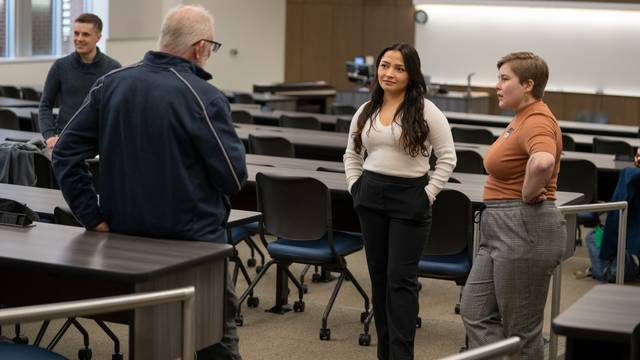The University of Wisconsin-Eau Claire is making changes to build upon its decades-long history of athletic training education.
Following approval today by the University of Wisconsin System Board of Regents, a Master of Science in athletic training degree will be offered at the University of Wisconsin-Eau Claire beginning in summer 2021. It will be the only athletic training graduate program in northwest Wisconsin.
The MSAT program will be offered through UW-Eau Claire’s kinesiology department and is an enhancement of the university’s undergraduate major in athletic training that has been offered since 2004. Before that, the university had offered an athletic training internship program starting in the 1960s and, beginning in the 1980s, a kinesiology major with an athletic training emphasis.
As the MSAT program is implemented, UW-Eau Claire will no longer offer a Bachelor of Science degree in athletic training. In spring 2019 the last cohort of undergraduate athletic training majors were accepted into the professional phase of the bachelor’s degree program, which will end in three years as those students complete the program.
The change is in response to newly adopted accreditation requirements by the Commission on the Accreditation of Athletic Training Education that all undergraduate athletic training education programs transition to the graduate level. Completion of a CAATE-accredited program is required to qualify for the national certification exam.
The MSAT program is a good fit for UW-Eau Claire, says Dr. Robert Stow, an associate professor of kinesiology and the director of athletic training education.
“We have a very talented athletic training faculty and staff with diverse clinical backgrounds who give our students outstanding learning opportunities in the classroom and in clinical settings,” Stow says. “Also, UW-Eau Claire’s focus on providing students with experiential learning opportunities, including faculty-student research, has created a setting that will serve well to support the success of students in the MSAT program.”
The new athletic training graduate degree will consist of 66 credits earned over two years, culminating in an evidence-based research project. The projected enrollment is a cohort of 20 students per year. By the end of year five, it is expected that 77 students will have enrolled in the program and 53 will have graduated from the program. Students completing the MSAT program will be eligible to sit for the Board of Certification exam and then enter the profession of athletic training.
Each year, up to five first-year UW-Eau Claire students will be selected for direct admission into the MSAT program. Their admission will be contingent upon their successful completion of the prerequisite courses and other program admission requirements.
UW-Eau Claire undergraduates seeking careers in athletic training will pursue bachelor’s degrees of their choosing, with the kinesiology department’s majors in exercise science or rehabilitative science majors among their options. Their undergraduate electives will include courses leading to completion of a pre-athletic training emphasis, which would qualify them for application to the MSAT program.
Patricia A. Kleine, UW-Eau Claire provost and vice chancellor for academic affairs, agrees UW-Eau Claire is an optimal setting for the MSAT program and undergraduate athletic training emphasis.
“Our Institute for Health Sciences and our Health Careers Center provide a strong support structure for students on pre-professional tracks to health careers,” Kleine says. “Both undergraduate and graduate students in athletic training will benefit greatly from this well-established supportive campus environment.
“Also, the MSAT program will extend UW-Eau Claire’s relationships with Mayo Clinic Health System, Marshfield Clinic, and other healthcare organizations in the region. These partnerships will provide high-quality advising and innovative learning, research and service-related experiences for our athletic training graduate students.”
Partners and patients will benefit as well, Stow says.
“The clinical instructors we work with learn from the students who ‘push’ them with inquiry, and as we are a significant feeder into the northwestern Wisconsin workforce, patients in the region benefit from our students’ increased knowledge base once they graduate and are employed as professionals.”




